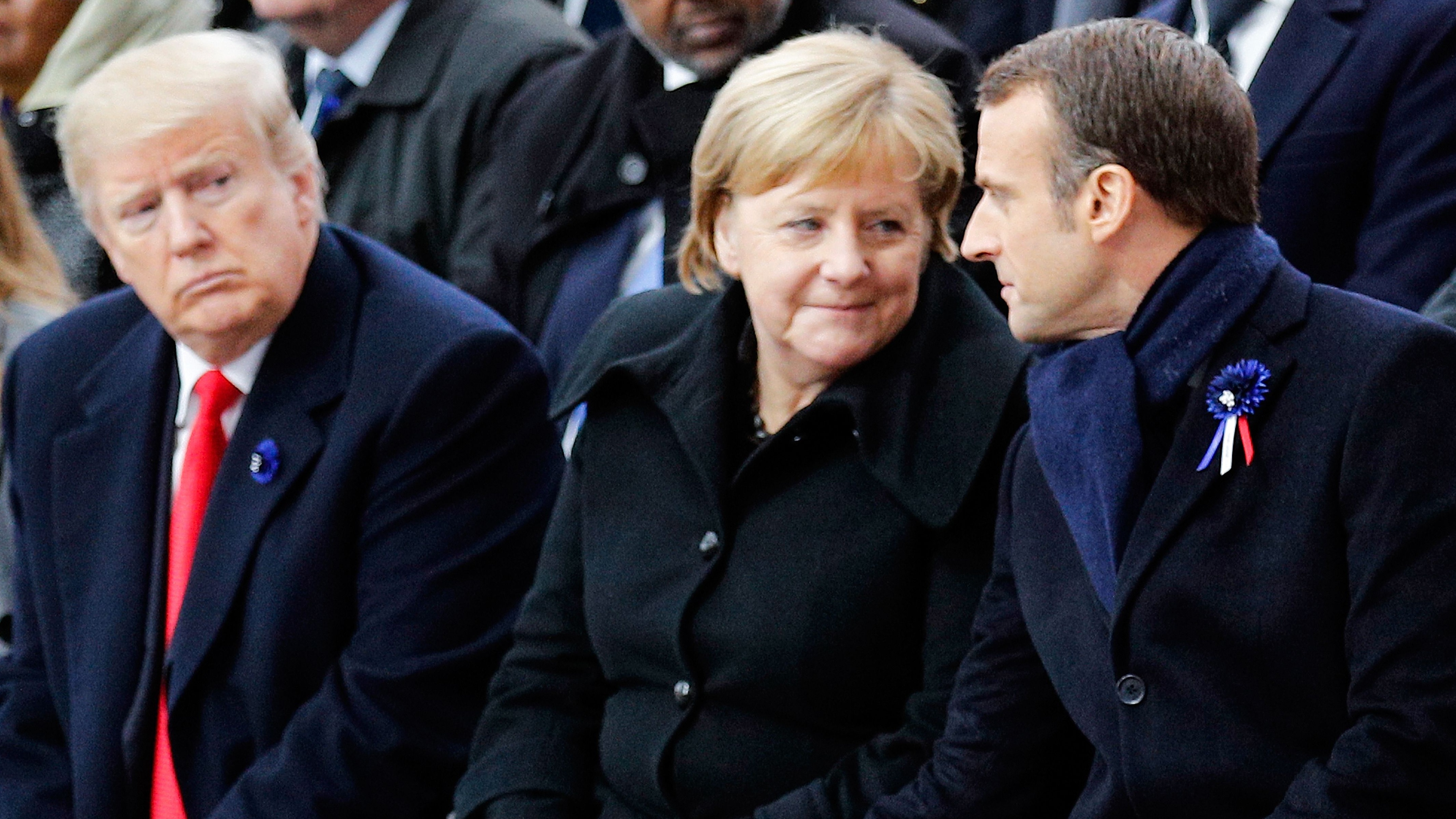Coronavirus: is Donald Trump secretly asking Europe for help?
Leaked email suggests US leader has sought medical aid from European and Asian partners

A free daily email with the biggest news stories of the day – and the best features from TheWeek.com
You are now subscribed
Your newsletter sign-up was successful
The US traditionally plays the rescuer in global emergencies but that role has been reversed during the ongoing coronavirus pandemic, according to reports.
Donald Trump has claimed that his administration is “literally being besieged” by domestic manufacturers offering to produce medical supplies to combat the outbreak in US.
At a White House briefing on Tuesday, the president insisted that no outside help was required, saying: “We should never be reliant on a foreign country for the means of our own survival. America will never be a supplicant nation.”
The Week
Escape your echo chamber. Get the facts behind the news, plus analysis from multiple perspectives.

Sign up for The Week's Free Newsletters
From our morning news briefing to a weekly Good News Newsletter, get the best of The Week delivered directly to your inbox.
From our morning news briefing to a weekly Good News Newsletter, get the best of The Week delivered directly to your inbox.
But “behind the scenes, the administration has approached European and Asian partners to secure supplies of testing kits and other medical equipment that are in desperately short supply in the US”, The Guardian reports.
–––––––––––––––––––––––––––––––For a round-up of the most important stories from around the world - and a concise, refreshing and balanced take on the week’s news agenda - try The Week magazine. Start your trial subscription today –––––––––––––––––––––––––––––––
Which countries is the US said to have asked for help?
According to Foreign Policy, an email was sent to embassy officials in Europe and Eurasia on Sunday to request information on which countries could sell “critical medical supplies and equipment” to the US.
A free daily email with the biggest news stories of the day – and the best features from TheWeek.com
The appeal was issued by the State Department’s Office of US Assistance to Europe, Eurasia, and Central Asia, which “under normal circumstances coordinates delivering US aid and assistance to countries in Europe and Eurasia, not the other way around”, says the news magazine.
“The fact that many countries are managing a Covid-19 outbreak should not/not necessarily dissuade posts from approaching host country officials and, as appropriate, the private sector, on this matter as there have been instances where such countries have signalled a readiness to sell the US surplus equipment and supplies,” the email reportedly reads.
“Depending on critical needs, the United States could seek to purchase many of these items in the hundreds of millions with purchases of higher end equipment such as ventilators in the hundreds of thousands.”
The appeal “underscores the severity of the ballooning coronavirus health crisis” in the US, where officials are braced for “a worst-case scenario based on how the pandemic has ravaged overburdened healthcare systems in countries like China and Italy”, adds Foreign Policy.
Meanwhile, The Guardian reports that on Tuesday, Trump made a phone call to South Korean President Moon Jae-in to ask whether the Asian nation could supply medical equipment.
“The official White House account made no mention of the request, but according to the South Korean presidency, the Blue House, the call was made at Trump’s ‘urgent request’,” says the newspaper.
The claim comes days after German officials announced that they had fended off a Trump administration offer to buy exclusive access to a potential vaccine being developed by a German company.
And on 18 March, the Defense One military news site reported that the US air force had quietly flown half a million nasal swabs from Italy to Memphis, for distribution across the country.
As The Guardian notes, the US is “by far the largest buyer of pharmaceuticals and medical supplies from China, and is seeking to import Chinese face masks and protective gear, but negotiations have been complicated by growing acrimony between the two countries, over what Trump has insisted until very recently on calling the ‘China virus’”.
-
 At least 8 dead in California’s deadliest avalanche
At least 8 dead in California’s deadliest avalancheSpeed Read The avalanche near Lake Tahoe was the deadliest in modern California history and the worst in the US since 1981
-
 Political cartoons for February 19
Political cartoons for February 19Cartoons Thursday’s political cartoons include a suspicious package, a piece of the cake, and more
-
 The Gallivant: style and charm steps from Camber Sands
The Gallivant: style and charm steps from Camber SandsThe Week Recommends Nestled behind the dunes, this luxury hotel is a great place to hunker down and get cosy
-
 A Nipah virus outbreak in India has brought back Covid-era surveillance
A Nipah virus outbreak in India has brought back Covid-era surveillanceUnder the radar The disease can spread through animals and humans
-
 The stalled fight against HIV
The stalled fight against HIVThe Explainer Scientific advances offer hopes of a cure but ‘devastating’ foreign aid cuts leave countries battling Aids without funds
-
 Obesity drugs: Will Trump’s plan lower costs?
Obesity drugs: Will Trump’s plan lower costs?Feature Even $149 a month, the advertised price for a starting dose of a still-in-development GLP-1 pill on TrumpRx, will be too big a burden for the many Americans ‘struggling to afford groceries’
-
 Covid-19 mRNA vaccines could help fight cancer
Covid-19 mRNA vaccines could help fight cancerUnder the radar They boost the immune system
-
 Can TrumpRx really lower drug prices?
Can TrumpRx really lower drug prices?Today’s Big Question Pfizer’s deal with Trump sent drugmaker stocks higher
-
 The new Stratus Covid strain – and why it’s on the rise
The new Stratus Covid strain – and why it’s on the riseThe Explainer ‘No evidence’ new variant is more dangerous or that vaccines won’t work against it, say UK health experts
-
 Why are autism rates increasing?
Why are autism rates increasing?The Explainer Medical experts condemn Trump administration’s claim that paracetamol during pregnancy is linked to rising rates of neurodevelopmental disorder in US and UK
-
 RFK Jr. vaccine panel advises restricting MMRV shot
RFK Jr. vaccine panel advises restricting MMRV shotSpeed Read The committee voted to restrict access to a childhood vaccine against chickenpox